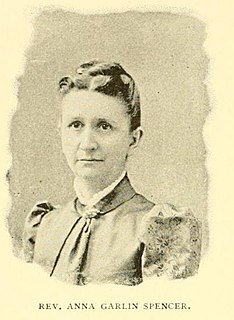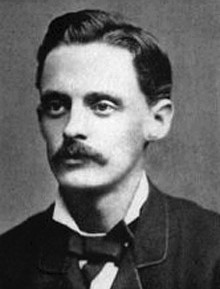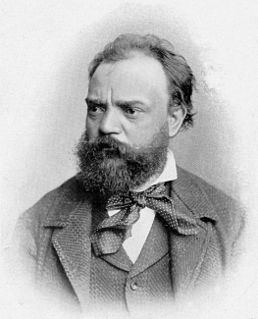Цитата Джона Эмброуза Флеминга
Мы склонны считать, что изобретение есть результат спонтанного действия некоего небесного гения, появления которого мы должны терпеливо ждать, но не можем искусственно вызвать. Не подлежит сомнению, однако, что образование, законодательные акты и общие социальные условия имеют колоссальное влияние на развитие способности к творчеству, присутствующей в нации, и определяют, будет ли она источником новых идей или станет просто покупателем у других готовые изобретения.
Темы цитат
Действие
Пришествие
Способно
стать
Невозможно
Условия
Обдумать
Определить
Развитие
Образование
Факультет
Фонтан
Общий
гений
Однако
идеи
Влияние
Изобретение
Изобретения
Законно
сделано
Должна
нация
Новая
новая идея
Новые идеи
Другие
терпеливо
представляют
Производят
готовый
готовый
результат
Просто
социальные
социальные
условия
Некоторое
спонтанное
ожидание
,
чьи
Связанные цитаты
Но прежде чем будут совершены какие-либо великие дела, необходимо произвести памятное изменение в системе образования, а знания должны стать настолько всеобщими, чтобы поднять низшие слои общества ближе к высшим. Образование нации, вместо того чтобы ограничиваться несколькими школами и университетами для обучения немногих, должно стать национальной заботой и расходами для сведения многих.
Чем больше Адамс думал о будущем своей страны, тем больше убеждался, что оно зависит от образования. Прежде чем будут совершены какие-либо великие дела, писал он корреспонденту, необходимо произвести памятное изменение в системе образования, а знания должны стать настолько всеобщими, чтобы приблизить низшие слои общества к высшим. Образование нации вместо того, чтобы ограничиваться несколькими школами и университетами для обучения немногих, должно стать национальной заботой и расходами на образование многих.
Органы, способности, силы, способности или как бы мы их ни называли; растут в результате использования и уменьшаются в результате неиспользования, предполагается, что они будут продолжать это делать. И если этот вывод бесспорен, то и вывод, вытекающий из него выше, — что человечество должно в конце концов полностью приспособиться к своим условиям, — также бесспорен. Прогресс, таким образом, не случайность, а необходимость.
Мы разрушаем самые священные отношения, когда заменяем домашнее воспитание общественным. А ваше образование! Разве это не тоже социально и не определяется ли социальными условиями, в которых вы воспитываетесь, вмешательством, прямым или косвенным, общества, средствами школ и т. д.? Коммунисты не изобрели вмешательство общества в образование; они всего лишь стремятся изменить характер этого вмешательства и спасти образование от влияния правящего класса.
Сегодня Ирак представляет непосредственную опасность для нашей страны. На этот раз мы не можем ждать. Мы не можем ждать, пока Саддам Хусейн предпримет разрушительные действия или передаст оружие массового уничтожения кому-то еще, кто это сделает. После 11 сентября просто невозможно сидеть сложа руки и созерцать врага — того, у кого есть заявленное намерение причинить нам вред, послужной список и средства, и просто ждать, пока он нанесет удар, чтобы защитить себя.
Должно ли изобретение быть запатентовано или безвозмездно передано в дар обществу? Я знавал некоторых благонамеренных ученых... которые косо смотрели на патентование изобретений, как будто это был довольно эгоистичный и нелюбезный поступок, по существу недостойный. Ответ очень простой. Опубликуйте изобретение свободно, и оно почти наверняка умрет от отсутствия интереса к его развитию. Он не будет развиваться, и мир не получит пользы. Запатентуйте его, и, если он окажется ценным, его возьмут на вооружение и превратят в бизнес.
Частью ответственности педагога является одинаковое внимание к двум вещам: во-первых, чтобы проблема вырастала из условий опыта, имеющегося в настоящем, и чтобы она находилась в пределах возможностей учащихся; и, во-вторых, она такова, что вызывает у учащегося активный поиск информации и выработку новых идей. Полученные таким образом новые факты и новые идеи становятся почвой для дальнейших опытов, в которых ставятся новые проблемы.
Я говорю, что умение управлять государством — это искусство души. Точно так же, как всякое образование является нравственным воспитанием, потому что обучение обуславливает поведение, большая часть законодательства является моральным законодательством, потому что оно обусловливает действия и мысли нации в широких и важных сферах жизни.
Мой собственный долг как учителя ... состоит не столько в том, чтобы интерпретировать Бетховена, Вагнера или других мастеров прошлого, сколько в том, чтобы всячески поддерживать молодых музыкантов Америки. Я... надеюсь, что так же, как эта нация уже превзошла столь многих других чудесными изобретениями и подвигами инженерии и коммерции и заняла себе почетное место в литературе за одно короткое столетие, так и она должна утвердиться на... .музыкальное искусство... Чтобы добиться такого результата, мы должны довериться самому юношескому энтузиазму и патриотизму этой страны.





































